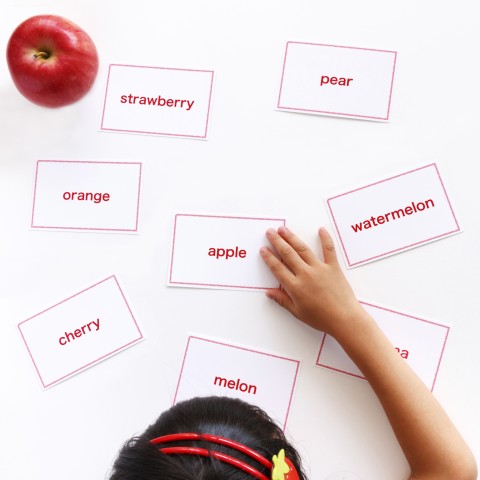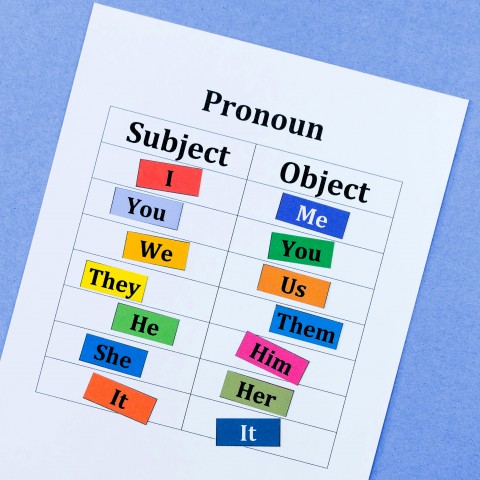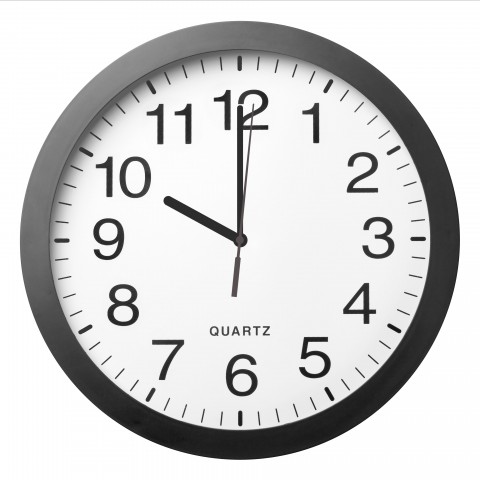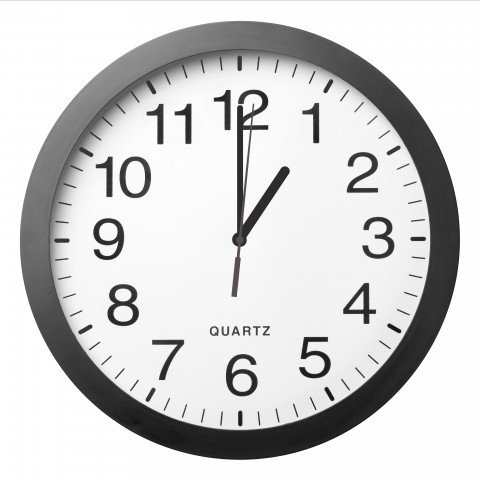
Have you seen HebrewPod101’s lessons on 100 Nouns and 100 Adjectives? Today, we’re going to take a look at the top 100 Hebrew verbs! Today’s lesson will both offer you an introduction to the unique grammar of Hebrew verb conjugation, as well as help you to arm your language toolkit with essential verbs.
Verbs are simply a necessity, moreso perhaps in Hebrew than in any other language. In fact, many sentences and questions in Hebrew are actually nothing more than conjugated verbs, so it’s not uncommon to hear one-word sentences and questions.
In this article, we’ll cover the basics of Modern Hebrew verbs, which, it should be noted, differ significantly from verb usage in the Bible. We’ll look at the ways a verb’s declension changes depending on what relationship we want to form between it and the agent and/or object of our sentence. And we’ll get a nice, useful list of the most common Hebrew verbs along the way!
For the purpose of getting a solid grasp on the verb patterns, we’ll look at conjugation in the past tense only, using third-person singular masculine to keep things simple. Once you’ve mastered the past tense, it will be easy enough to build the present and future tenses on that foundation and to apply grammatical gender and number.
Remember that this is one aspect of Hebrew you can breathe easy about. In most language applications, we essentially only use three tenses: simple past, simple present, and simple future.
 Table of Contents
Table of Contents
- Introduction to the Binyanim, or Hebrew Verb Conjugation Patterns
- Paal Verbs
- Piel Verbs
- Hif’il Verbs
- Huf’al Verbs
- Pual Verbs
- Nifal Verbs
- Hitpael Verbs
- Conclusion: Verbs are where the action’s at!
1. Introduction to the Binyanim, or Hebrew Verb Conjugation Patterns
Similar to other languages, the Hebrew verb system uses patterns to help us conjugate verbs. Luckily for Hebrew language learners, these patterns are pretty strictly followed, with few exceptions. Also to your advantage as a student of Hebrew is the fact that there’s a logical division of verbs into these different conjugation patterns. In fact, the conjugation pattern tells us the verb’s function. For example, it tells us if it’s an active verb, a passive verb, or a reflexive verb.

Additionally, remember that the entire Hebrew language is built on the shoresh, or “root” system. So we’ll see that most verbs will be represented in different conjugation patterns that will use the meaning of the root word in different relationships. Hebrew verb roots will, for example, indicate if the verb represents doing something to something or someone else, doing something to ourselves, or having something done to us, etc.
Here are the different Hebrew verb categories according to their conjugation patterns:
HEBREW ACTIVE VERBS
• פעל
Pa’al
• פיעל
Piel
• הפעיל
Hif’il
HEBREW PASSIVE VERBS
• הופעל
Huf’al
• פועל
Pual
• נפעל
Nif’al
HEBREW REFLEXIVE VERBS
• התפעל
Hitpael
2. Paal Verbs

To make more sense of the Hebrew verb types, let’s start by taking a look at the root פ״ע״ל (peh-ayin-lamed). This word always has something to do with action, and its various conjugations are not only verbs unto themselves, they’re also the names for the other verbs in Hebrew that follow the same pattern. For example, פעל (paal) means “worked” or “performed,” but it’s also the name for the category of verbs that follow the same pattern, with the vowels קמץ (kamatz) and then פתח (patakh), both of which sound like the “a” in the word “father.” These verbs are general action verbs.
Here’s a list of paal verbs with example sentences:
- אמר
Amar
“Said”
דוד אמר שלום לחברים שלו.
David amar shalom la-khaverim shelo.
“David said hello to his friends.”
- שאל
Sha’al
“Asked”
הוא שאל אותי איפה התחנה המרכזית.
Hu shaal oti eyfoh hatakhanah hamerkazit.
“He asked me where the central bus station is.”
- כתב
Katav
“Wrote”
הוא כתב לי מכתב באנגלית.
Hu katav li mikhtav be-Anglit.
“He wrote me a letter in English.”
- בנה
Banah
“Built”
אבא בנה בית מעץ.
Aba banah bayit me-etz.
“Father built a wooden house.”
- גמר
Gamar
“Finished”
הוא גמר את שיעורי הבית שלו מיד אחרי שחזר הביתה.
Hu gamar et shiurey habayit shelo miyad akharey shekhazar habaytah.
“He finished his homework right after he got home.”
- שלח
Shalakh
“Sent”
בועז שלח לי מייל לגבי העסקה.
Boaz shalakh li meyl legabey ha-iskah.
“Boaz sent me an email about the deal.”
- סגר
Sagar
“Closed”
הוא סגר את הדלת מאחוריו.
Hu sagar et ha-delet me’akhorav.
“He closed the door behind him.”
- ראה
Raah
“Saw”
משה ראה את השמיים האפורים ולבש מעיל גשם.
Mosheh raah et hashamayim haaforim velavash meil.
“Moshe saw the gray sky and put on a coat.”
- חשב
Chashav
“Thought”
הוא חשב על הבחורה הכי יפה בכיתה והסמיק.
Hu khashav al habakhurah hakhi yafah bakitah vehismik.
“He thought about the prettiest girl in the class and blushed.”
- זכר
Zakhar
“Remembered”
הוא לא זכר את שמו של האיש הזקן.
Hu lo zakhar et shmo shel ha-ish ha-zaken.
“He didn’t remember the old man’s name.”
- בחר
Bakhar
“Chose”
רם בחר את הגלידה בטעם וניל.
Ram bakhar et ha-glidah be-ta’am vanil.
“Ram chose the vanilla-flavored ice cream.”
- שמע
Shama
“Heard”
הוא לא שמע את השעון המעורר שלו.
Hu lo shama et ha-shaon ha-meorer shelo.
“He didn’t hear his alarm clock.”
- חלם
Khalam
“Dreamt”
דניאל חלם על אי יפה באוקיינוס השקט.
Daniel khalam al ee yafeh ba-okiyanus ha-shaket.
“Daniel dreamt of a beautiful island in the Pacific Ocean.”
- שמר
Shamar
“Kept” / “Guarded” / “Put away”
אריק שמר את השאריות במקרר.
Arik shamar et ha-she’eriyot ba-mekarer.
“Arik put away the leftovers in the refrigerator.”
- מכר
Makhar
“Sold”
סבא שלי מכר את האוטו הישן שלו.
Saba sheli makhar et ha-oto ha-yashan shelo.
“My grandfather sold his old car.”
3. Piel Verbs

Similar to paal verbs, piel verbs also describe general action verbs and don’t necessarily involve or mention the object of the action being described. They simply follow a different conjugation pattern, which we must learn by practicing. Note that the vowels here are חיריק (khirik) and צירי (tzeyrey), equivalent to the “ee” in “tree” and the “ay” in “tray,” respectively.
The following is a list of essential Hebrew verbs that fall under the piel category, along with example sentences.
- נישק
Nishek
“Kissed”
אבא נישק את אמא לכבוד שבת.
Aba nishek et ima likhvod Shabat.
“Father kissed mother for the Sabbath.”
- שילם
Shilem
“Paid”
הבחור הנדיב שילם על ההזמנות של כולם.
Ha-bakhur ha-nadiv shilem al ha-hazmanot shel kulam.
“The generous fellow paid for everyone’s orders.”
- מילא
Mile
“Filled (out)”
השוטר מילא את הדו״ח עם פרטי התאונה.
Ha-shoter mila et haduakh im pirtey ha-teunah.
“The police officer filled out the report with the details of the accident.”
- דיבר
Diber
“Spoke”
הילד דיבר בקול חזק מאוד.
Ha-yeled diber bekol khazak meod.
“The boy spoke in a very loud voice.”
- לימד
Limed
“Taught”
אבא שלי לימד אותי לנהוג.
Aba sheli limed oti linhog.
“My father taught me to drive.”
- טאטא
Tita
“Swept”
העובד טאטא את הרצפה בחנות.
Ha-oved tita et ha-ritzpah ba-khanut.
“The employee swept the floor in the store.”
- ביטל
Bitel
“Canceled”
ראש הממשלה ביטל את הנסיעה שלו לחו״ל.
Rosh ha-memshalah bitel et ha-nesiah shelo le-khu”l.
“The prime minister canceled his visit abroad.”
- חיבר
Khiber
“Connected”
הטכנאי חיבר לי אינטרנט בדירה.
Ha-tekhnay khiber li internet ba-dirah.
“The technician connected the internet in my apartment.”
- סיפר
Siper
“Told”
החייל סיפר לנו על המבצע המסוכן.
Ha-khayal siper lanu al ha-mivtza ha-mesukan.
“The soldier told us about the dangerous mission.”
- מיהר
Miher
“Rushed”
השחקן מיהר לתפוס את הכדור.
Ha-sakhkan miher litfos et ha-kadur.
“The player rushed after the ball.”
- לכלך
Likhlekh
“Dirtied”
הילד ליכלך את המכנסיים שלו בבוץ.
Ha-yeled likhlekh et ha-mikhnasayim shelo ba-botz.
“The boy dirtied his pants in the mud.”
- חייך
Khiyekh
“Smiled”
הוא חייך לי מבעד לחלון.
Hu khiyekh li mibead lakhalon.
“He smiled at me through the window.”
- טייל
Tiyel
“Traveled”
שלמה טייל שנה בהודו אחרי הצבא.
Shlomoh tiyel shanah be-Hodu akharey ha-tzava.
“Shlomo traveled for a year in India after the army.”
- ניצח
Nitzeach
“Won”
הצבא ניצח במלחמה מול האויב.
Ha-tzava nitzeakh ba-milkhamah mul haoyev.
“The army won the war against the enemy.”
- סימן
Simen
“Marked” / “Highlighted / “Mentioned”
המורה סימן את הדוגמה במאמר.
Hamoreh simen et hadugmag bamaamar.
“The teacher marked the example in the article.”
4. Hif’il Verbs

Hebrew Hif’il verbs are also action verbs, but these specifically describe something done to something or someone, like a transitive verb in English with an object. For example, in the case of הפעיל (Hif’il), the name of this verb conjugation pattern, the verb of the same name means “to operate something or someone.”
These are very handy verbs to know as they will help us describe all sorts of interactions in day-to-day life. Note that they mostly use the vowel חיריק (khirik) twice, equivalent to the “ee” in “tree,” though some also use צירי (tzeyrey) and חיריק (khirik), equivalent to the “ay” in “tray” and the “ee” in “tree,” respectively.
The following is a list of some of the most common Hif’il verbs, along with example sentences.
- הפעיל
Hif’il
“Activated” / “Turned on”
הנהג הפעיל את המזגן באוטובוס.
Hanahag Hif’il et hamazgan baotobus.
“The driver turned on the air conditioner on the bus.”
- השמיע
Hishmia
“Sounded” / “Played (audio)”
הוא השמיע לי דיסק של מוזיקה קלאסית.
Hu hishmia li disk shel muzikah klasit.
“He played me a CD of classical music.”
- הכניס
Hikhnis
“Put in” / “Brought in” / “Ushered in”
המנהל הכניס אותנו למשרד שלו לשיחה רצינית.
Hamenahel hikhnis otanu lamisrad shelo lesikhah retzinit.
“The manager ushered us into his office for a serious conversation.”
- הציע
Hetzia
“Offered” / “Suggested”
אבא הציע לי עבודה אצלו במשרד אחרי האוניברסיטה.
Aba hetzia li avodah etzlo bamisrad akharey hauniversitah.
“Dad offered me a job in his office after university.”
- הפריע
Hifria
“Bothered”
הכלב של השכנים הפריע לי לישון כל הלילה.
Hakelev shel hashkhenim hifria li lishon kol halaylah.
“The neighbors’ dog bothered me all night as I tried to sleep.”
- הביא
Hevi
“Brought”
אח שלי הביא לנו מתנות מפריז.
Akh sheli hevi lanu matanot mePariz.
“My brother brought us presents from Paris.”
- הכין
Hekhin
“Prepared”
מוחמד הכין לנו חומוס ממש טעים.
Mukhamad hekhin lanu khumus mamash taim.
“Muhammad prepared some really tasty hummus for us.”
- הציל
Hitzil
“Saved” / “Rescued”
המעיל הזה ממש הציל אותי מהקור היום.
Hameil hazeh mamash hitzil oti mehakor hayom.
“This coat really saved me from the cold today.”
- הבין
Hevin
“Understood”
התייר לא הבין אותנו בכלל.
Hatayar lo hevin otanu bikhlal.
“The tourist didn’t understand us at all.”
- הביט
Hebit
“Looked”
האיש הביט בנוף וחייך.
Haish hebit banof vekhiyekh.
“The man looked at the view and smiled.”
- הזכיר
Hizkir
“Reminded”
שמואל הזכיר לנו לקחת קרם הגנה.
Shmuel hizkir lanu lakakhat krem haganah.
“Shmuel reminded us to take sunscreen.”
- הבטיח
Hivtiakh
“Promised”
זוהר הבטיח לי לשמור על הכלב בסוף השבוע.
Zohar hivtiakh li lishmor al hakelev besof hashavua.
“Zohar promised to watch my dog this weekend.”
- הזמין
Hizmin
“Ordered” / “Invited”
חבר שלי הזמין אותי לקונצרט ביום שני.
Khaver sheli hizmin oti le-kontzert be-yom sheni.
“My friend invited me to a concert on Monday.”
- החזיר
Hekhzir
“Returned” / “Brought back”
נהג המונית החזיר אותי הביתה מתחנת הרכבת.
nahag ha-monit hekhzir oti ha-baytah metakhanat ha-rakevet.
“The taxi driver brought me back home from the train station.”
- החביא
Hekhbi
“Hid”
הקוסם החביא את הקלף בשרוול שלו.
Hakosem hekhbi et haklaf basharvul shelo.
“The magician hid the card up his sleeve.”
5. Huf’al Verbs

Huf’al verbs can be thought of as the passive or past participle of Hif’il verbs. In other words, we’re thinking of the same meaning of the shoresh and the same interaction, just described from the perspective of the object and not the agent.
To this end, in our examples we’ll look at the Huf’al form of some of the same Hif’il verbs we just saw above. Note that these verbs use the vowels שורוק (shuruk) or קובוץ (kubutz), and then פתח (patakh), like “oo” in “cool” and “a” in “father,” respectively.
- הופעל
Huf’al
“Was operated” / “Was activated”
השעון המעורר הופעל לשש בבוקר.
Hashaon hameorer Huf’al leshes baboker.
“The alarm clock was activated for six in the morning.”
- הושמע
Hushma
“Was played” / “Was heard” / “Was sounded”
השיר היפה הושמע ברדיו.
Hashir hayafeh hushma baradiyo.
“The pretty song was played on the radio.”
- הוכנס
Hukhnas
“Was brought in” / “Was put in”
התלמיד החדש הוכנס למשרד המנהל.
Hatalmid hakhadash hukhnas lemisrad hamenahel.
“The new student was brought in to the principal’s office.”
- הוצע
Hutza
“Was proposed” / “Was suggested”
הרעיון הוצע על ידי איש צוות מירושלים.
Haraayon hutza al yedey ish tzevet meYerushalayim.
“The idea was proposed by a staff member from Jerusalem.”
- הובא
Huva
“Was brought”
החומר לבניין הובא לאתר במשאית.
Hakhomer lebinyan huva laatar bemasait.
“The building material was brought to the site by truck.”
- הוצל
Hutzal
“Was saved” / “Was rescued”
הילד הוצל מהזרם על ידי המציל.
Hayeled hutzal mehazerem al yedey hametzil.
“The boy was rescued from the current by the lifeguard.”
- הובטח
Huvtakh
“Was promised” / “Was guaranteed”
המקום שלי במשרד הובטח על ידי הבוסית.
Hamakom sheli bamisrad huvtakh al yedey habosit.
“My position in the office was guaranteed by the boss.”
- הוחזר
Hukhzar
“Was returned” / “Was brought back”
הכלב שלי הוחזר הביתה על ידי שכן שהכיר אותו ברחוב.
Hakelev sheli hukhzar habaytah al yedey shakhen shehekir oto barekhov.
“My dog was brought back home by a neighbor who recognized him in the street.”
- הוקם
Hukam
“Was established” / “Was founded” / “Was erected”
התיאטרון הוקם לפני יותר ממאה שנה.
Hateatron hukam lifney yoter memeah shanah.
“The theater was founded more than 100 years ago.”
- הומלץ
Humlatz
“Was recommended” / “Was suggested”
בית הקפה הזה הומלץ לי על ידי ידידה.
Beyt hakafeh hazeh humlatz li al yedey yedidah.
“This café was recommended to me by a friend.”
- הופסק
Hufsak
“Was stopped” / “Was turned off” / “Was disconnected”
שירות האינטרנט הופסק בגלל אי תשלום.
Sheyrut hainternet hufsak biglal iy tashlum.
“The internet service was disconnected for failure to pay.”
- הוצב
Hutzav
“Was placed” / “Was set up”
הבסיס הוצב קרוב לגבול.
Habasis hutzav karov lagvul.
“The base was set up near the border.”
- הושג
Husag
“Was achieved”
השלום עם מצרים הושג על ידי מנחם בגין.
Hashalom im Mitzrayim husag al yedey Menakhem Begin.
“Peace with Egypt was achieved by Menachem Begin.”
- הועבר
Huavar
“Was transferred”
המכתב שלך הועבר ישר למנהל.
Hamikhtav shelkha huavar yashar lamenahel.
“Your letter was transferred directly to the manager.”
- הושם
Husam
“Was applied”
למה מחייבים אותי עוד פעם אם המס כבר הושם?
Lamah mekhayvim oti od paam im hamas kvar husam?
“Why are you charging me again if the tax was already applied?”
6. Pual Verbs

Pual verbs can be thought of as the past participle of piel verbs. So once again, we’re thinking of the same meaning of the shoresh and the same interaction, but described from the perspective of the object. Again, in our examples, we’ll look at the pual form of some of the same piel verbs we looked at earlier.
Note that these verbs use the vowels שורוק (shuruk) or קובוץ (kubutz), and then פתח (patakh), like “oo” in “cool” and “a” in “father,” respectively.
- שולם
Shulam
“Was paid”
החשבון שולם מראש.
Hakheshbon shulam merosh.
“The bill was paid in advance.”
- בוטל
Butal
“Was canceled”
הקונצרט בוטל בשל מזג האוויר.
Hakontzert butal beshel mezeg haavir.
“The concert was canceled due to the weather.”
- חובר
Khubar
“Was connected”
החשמל חובר לפני שבוע.
Hakheshmal khubar lifney shavua.
“The electricity was connected a week ago.”
- סופר
Supar
“Was told”
הסיפור המפורסם הזה סופר בספר הזכרונות של סבא שלי.
Hasipur hamefursam hazeh supar besefer hazikhronot she saba sheli.
“That famous story was told in my grandfather’s memoirs.”
- גודל
Gudal
“Was raised” / “Was cultivated”
במקור הפלפל גודל במקסיקו.
Bamakor hapilpel gudal beMeksiko.
“Originally, pepper was cultivated in Mexico.”
- דובר
Dubar
“Was spoken”
היידיש דובר על ידי יהודי אירופה לפני מלחמת העולם השנייה.
Hayidish dubar al yedey yehudey Eyropah lifney Milkhemet Haolam Hashniyah.
“Yiddish was spoken by European Jews before World War II.”
- יושב
Yushav
“Was settled”
הגליל יושב בעיקר על ידי חקלאים.
HaGalil yushav beikar al yedey khaklaim.
“The Galil was settled mostly by farmers.”
- כונה
Kunah
“Was called” / “Was nicknamed”
דוד בן ישי כונה גם דוד המלך.
David ben Yishay kunah gam David Hamelekh.
“David son of Jesse was also called King David.”
- טופל
Tupal
“Was handled” / “Was treated”
התיק שלך כבר טופל.
Ha-tik shelkha kvar tupal.
“Your case was already handled.”
- זומן
Zuman
“Was invited”
יעקב זומן להשתתף בחידון התנ״ך.
Yaakov zuman lehishtatef beKhidon Hatana”kh.
“Yaakov was invited to take part in the Bible Contest.”
7. Nifal Verbs
Nifal verbs are a bit trickier to describe because they’re used in a diverse set of circumstances. Like Huf’al and Pual verbs, they can sometimes be passive; however, they can sometimes also be active or even be used in situations where they’re something akin to the progressive tense in English.
We can make more sense of this by seeing some examples. Note that these verbs use different vowel combinations in addition to the חיריק (khirik) and פתח (patakh), like “ee” in “tree” and “a” in “father,” respectively, of the category name נפעל (nifal).
- נכנס
Nikhnas
“Came in” / “Went in”
הרופא נכנס לבית החולים להתחיל את המשמרת שלו.
Harofe nikhnas leveyt hakholim lehatkhil et hamishmeret shelo.
“The doctor went in to the hospital to start his shift.”
- נודע
Noda
“Made aware of” / “Became known”
מתי נודע לך על מות השכן?
Matay noda lekha al mot hashakhen?
“When were you made aware of your neighbor’s death?”
- נראה
Nir’eh
“Look” / “Appear”
אני נראה טוב עם עניבה?
Ani nireh tov im anivah?
“Do I look good in a tie?”
- נשמע
Nishma
“Sound”
נשמע לך כמו רעיון טוב?
Nishma lekha kemo raayon tov?
“Does that sound like a good idea to you?”
- נרדם
Nirdam
“Fall asleep”
הכלב שלי תמיד נרדם ליד הכיסא שלי.
Ha-kelev sheli tamid nirdam leyad ha-kise sheli.
“My dog always falls asleep beside my chair.”
- נמצא
Nimtza
“Is found” / “Is encountered” / “Is located”
איפה נמצא הקניון, בבקשה?
Eyfoh nimtza ha-kanyon be-vakasha?
“Where is the mall located, please?”
- נמשך
Nimshakh
“Continue” / “Last”
הגשם נמשך כל היום.
Ha-geshem nimshakh kol ha-yom.
“The rain lasted all day.”
- נשאר
Nish’ar
“Remain” / “Stay”
למה אתה לא נשאר אצלי בדירה?
Lamah atah lo nishar etzli badirah?
“Why don’t you stay at my apartment?”
- נגמר
Nigmar
“Finish” / “Be over”
הסרט כבר נגמר?
Ha-seret kvar nigmar?
“Is the movie already over?”
- נעצר
Ne’etzar
“Stop” / “Get arrested”
פתאום השעון שלי נעצר!
Pitom hashaon sheli neetzar!
“My watch suddenly stopped!”
- נסתר
Nistar
“Hidden”
מה שנסתר בלב הוא תמיד מסתורין.
Mah shenistar balev hu tamid mistorin.
“What’s hidden in the heart is always a mystery.”
- נלווה
Nilveh
“Accompany”
אני מחפש אביזר נלווה לתיק הזה.
Ani mekhapes avizar nilveh latik hazeh.
“I am looking for an accessory to accompany this bag.”
- נזכר
Nizkar
“Mentioned”
זה אותו המקום הנזכר בתנ״ך.
Zeh oto hamakom hanizkar baTana”kh.
“This is the same place that is mentioned in the Bible.”
- נשלח
Nishlakh
“Sent”
המסרון שלך נשלח בהצלחה.
Ha-misron shelkha nishlakh be-hatzlakhah.
“Your message was sent successfully.”
- נקרא
Nikra
“Called”
המקום הזה נקרא עמק השלום.
Ha-makom hazeh nikra Emek Hashalom.
“This place is called The Valley of Peace.”
8. Hitpael Verbs

Hitpael verbs are definitely one of the coolest features of Hebrew. This is the reflexive form of a verb, meaning it describes something that an agent does to him- or itself. This form is used very commonly in Hebrew.
Note that it uses three vowels: חיריק (khirik), like “ee” in “tree,” פתח (patakh), like “a” in “father,” and צירי (tseyrey), like “ay” in “tray.”
- התקרר
Hitkarer
“Got cold”
האוכל שלך התקרר.
Ha-okhel shelkha hitkarer.
“Your food got cold.”
- התחמם
Hitkhamem
“Got warm”
הוא התחמם מול האח.
Hu hitkhamem mul ha-akh.
“He got warm in front of the fireplace.”
- הסתכל
Histakel
“Looked at”
הוא הסתכל על כל התמונות אבל זיהה את גנב.
Hu histakel al kol ha-tmunot aval lo zihah et ha-ganav.
“He looked at all the pictures, but didn’t recognize the thief.”
- הסתובב
Histovev
“Turned around”
הוא הסתובב וראה שמישהו עוקב אחריו.
Hu histovev ve-ra’ah she-mishehu okev akharav.
“He turned around and saw that someone was following him.”
- הסתדר
Histader
“Worked out” / “Came together”
הכל הסתדר לי אחרי שסיימתי את הצבא.
Hakol histader li keshe-siyamti et ha-tzava.
“Everything worked out for me after I finished the army.”
- הסתבך
Histabekh
“Got into a bind” / “Had trouble”
הוא הסתבך בכבישים עם ההנחיות הבלתי ברורות.
Hu histabekh ba-kvishim im ha-hankhayot ha-bilti brurot.
“He had trouble on the road with the unclear directions.”
- הצטער
Hitztaer
מיכאל הצטער על זה שהוא צעק על חברה שלו.
Mikhael hitztaer al zeh shehu tza’ak al khaverah shelo.
“Michael regretted having yelled at his girlfriend.”
- השתדל
Hishtadel
“Made an effort”
אבא שלי תמיד השתדל לעזור לי בלימודים.
Aba sheli tamid hishtadel la’azor li ba-limudim.
“My father has always made an effort to help me with schoolwork.”
- התחבר
Hitkhaber
“Connected to”
הפלאפון שלי לא התחבר לאינטרנט משום מה.
Ha-pelefon sheli lo hitkhaber la-internet mishum mah.
“My cell phone didn’t connect to the internet for some reason.”
- השתנה
Hishtanah
“Changed”
הכפר שלי לא השתנה כבר עשרים שנה.
Ha-kfar sheli lo hishtanah kvar esrim shanah.
“My village hasn’t changed in twenty years.”
- השתמש
Hishtamesh
“Used”
הקצין השתמש במשקפת כדי לסרוק את הסביבה.
Ha-katzin hishtamesh ba-mishkefet kedey lisrok et ha-svivah.
“The officer used the binoculars to sweep the surroundings.”
- השתתף
Hishtatef
“Participated”
זה הזמר שהשתתף בתוכנית הטלוויזיה.
Zeh ha-zamar she-hishtatef be-tokhnit ha-televiziyah.
“That’s the singer who participated in the TV show.”
- התבלבל
Hitbalbel
“Got confused”
הנהג התבלבל במחלף ופנה ימינה במקום שמאלה.
Ha-nahag hitbalbel ba-makhlef ve-panah yeminah bimkom smolah.
“The driver got confused at the intersection and turned right instead of left.”
- התגעגע
Hitga’agea
“Missed”
היפני התגעגע לסושי אמיתי כמו בבית.
Ha-Yapani hitga’agea lesushi amiti kemo ba-bayit.
“The Japanese missed real sushi like back home.”
- התעורר
Hitorer
“Woke up”
הספורטאי תמיד התעורר לאימון בוקר מוקדם.
Ha-sportai tamid hit’orer le-imun boker mukdam.
“The athlete always woke up for an early morning workout.”
9. Conclusion: Verbs are where the action’s at!
I hope you’ve had fun learning the top 100 Hebrew verbs today. As you can see, Hebrew verbs are a huge topic, so it’s best to take it a portion at a time. For example, you could start by tackling just one binyan or, if you’re a bit more courageous, possibly studying all the active verb forms first, then moving on to the passive ones later. In any case, don’t stress about trying to dominate all of these all at once!
Remember that HebrewPod101 is here to help you grow your Hebrew skills at your own pace. Use this lesson as an introductory guide, and then delve deeper into the topics you wish to study more.
And take comfort in the fact that if you start recognizing the roots in a verb, as well as the conjugation patterns, you can actually start understanding verbs even if you’ve never seen them before, just by recognizing the root letters and the relationship the vowels indicate!
Have fun, and let us know if you’re still a bit unsure about any of the topics we discussed today, or if we left something out about Hebrew verbs that you would really like to know. Also keep an eye out for our upcoming article on how to conjugate Hebrew verbs, where we’ll further discuss how this works.
Shalom!













 Table of Contents
Table of Contents

























 Table of Contents
Table of Contents







 Table of Contents
Table of Contents











































